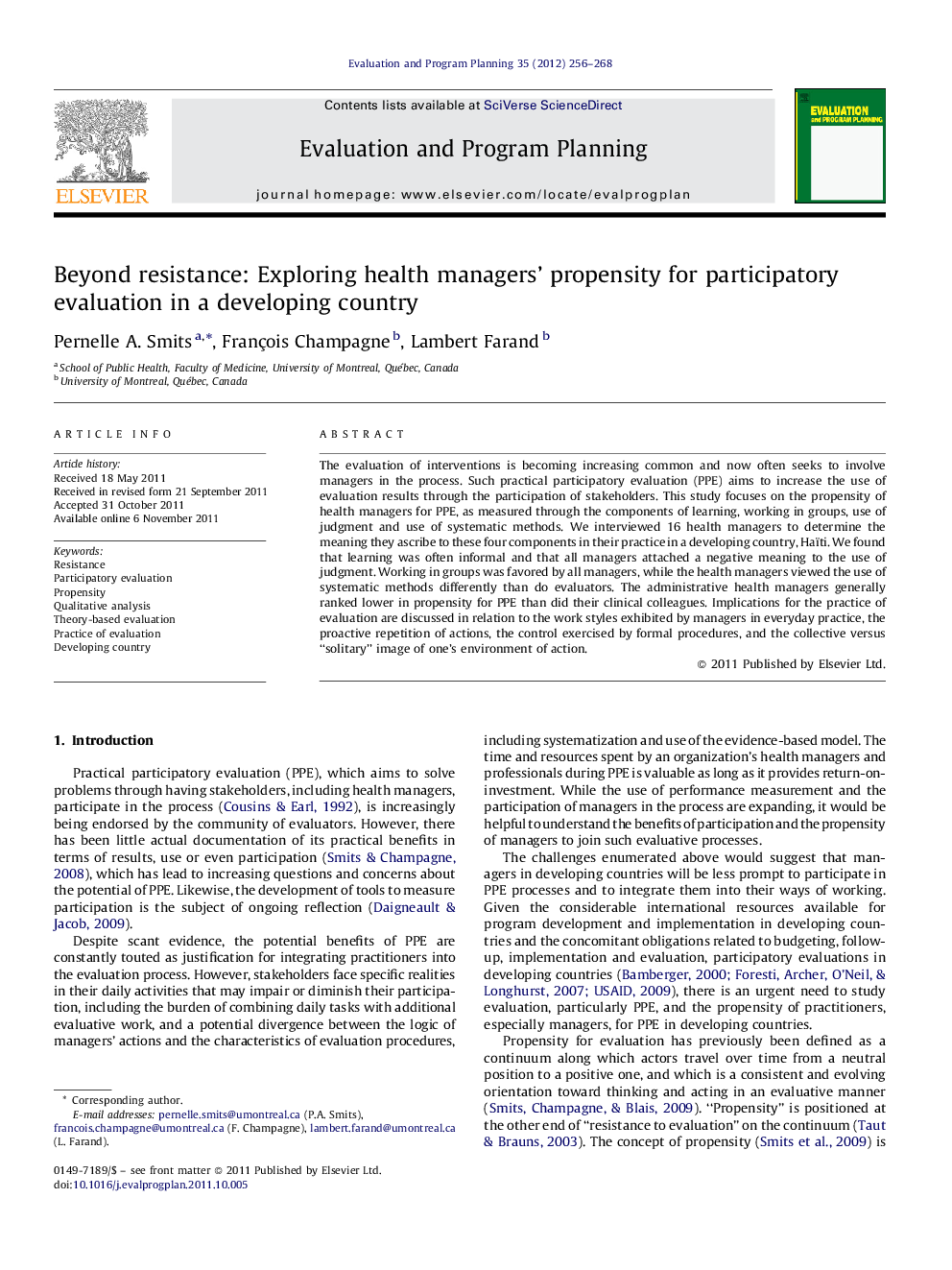| Article ID | Journal | Published Year | Pages | File Type |
|---|---|---|---|---|
| 319464 | Evaluation and Program Planning | 2012 | 13 Pages |
The evaluation of interventions is becoming increasing common and now often seeks to involve managers in the process. Such practical participatory evaluation (PPE) aims to increase the use of evaluation results through the participation of stakeholders. This study focuses on the propensity of health managers for PPE, as measured through the components of learning, working in groups, use of judgment and use of systematic methods. We interviewed 16 health managers to determine the meaning they ascribe to these four components in their practice in a developing country, Haïti. We found that learning was often informal and that all managers attached a negative meaning to the use of judgment. Working in groups was favored by all managers, while the health managers viewed the use of systematic methods differently than do evaluators. The administrative health managers generally ranked lower in propensity for PPE than did their clinical colleagues. Implications for the practice of evaluation are discussed in relation to the work styles exhibited by managers in everyday practice, the proactive repetition of actions, the control exercised by formal procedures, and the collective versus “solitary” image of one's environment of action.
► Significance of propensity for participatory evaluation to managers. ► Variation in propensity for participatory evaluation among individuals. ► View of the use of systematic methods differs for managers and evaluators. ► Lower ranking in propensity for participatory evaluation for administrative managers than clinical colleagues. ► Implications for the practice of evaluation.
